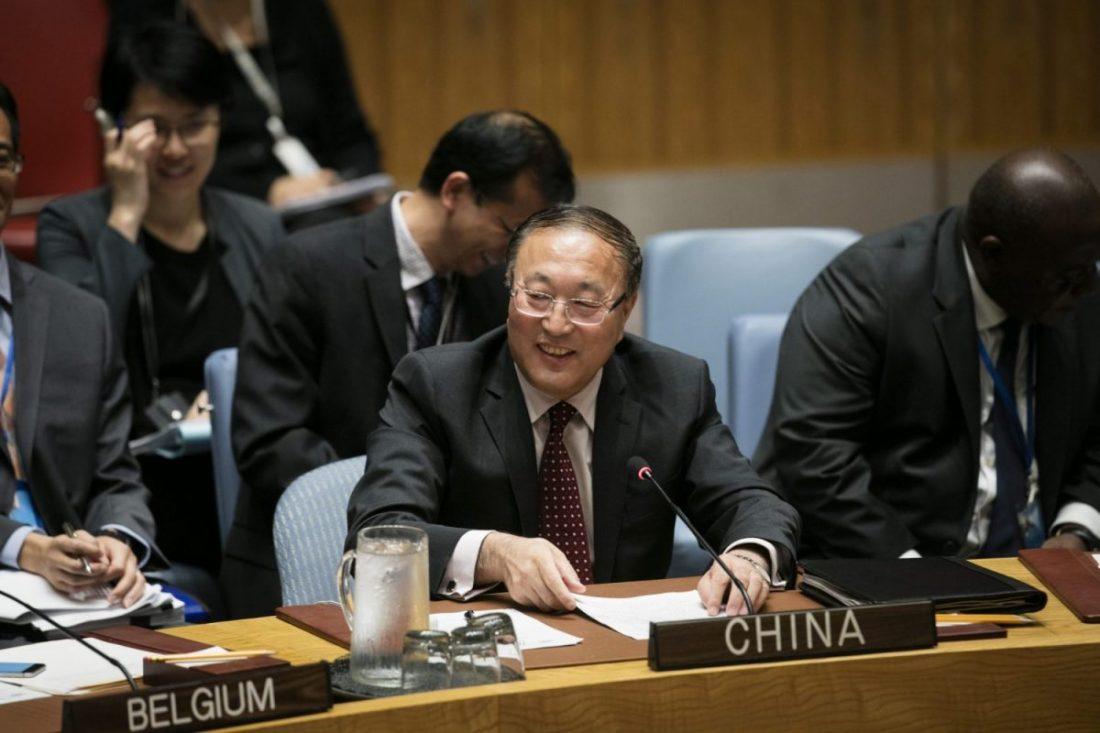Shaping from within: a UN with Chinese characteristics?
Posted By Rosemary Foot on August 5, 2020 @ 11:00

Chinese President Xi Jinping is urging [1] China to ‘lead the reform of the global governance system’ and to ‘actively participate in the formulation of international rules’. Such statements suggest that we now should be able to gain better insight into Beijing’s vision for the world order. What can we learn from its efforts to reshape how the United Nations operates?
China’s active engagement is evident within many well-established international organisations, and it has created new global and regional institutions. But the UN is a particular focus of Chinese attention. Over the past five or so years, Beijing has provided the UN with significant resources and—as its confidence and influence grows—now seeks higher-level positions within the secretariat and in specialised agencies. It is also working to shape UN norms and procedures.
These efforts have increased alongside the UN’s evolution into an organisation that promotes a redefinition of security [2] to include human protective elements such as the protection of civilians in armed conflict, the ‘responsibility to protect’, and the shielding of those who endure conflict-related sexual violence.
This multilateral setting does impose structural and image-related constraints on China’s behaviour. The UN has an interdependent three-pillar structure comprising international peace and security, development and human rights. As UN secretaries-general constantly declare, attention to all three elements is the best means of achieving the organisation’s core objectives—and that formulation is difficult to overturn. A China that seeks to resist or change the balance among these three interdependent elements has its work cut out.
Beijing’s main method of addressing UN attachment to the three-pillar approach is mobilising support for an alternative triadic model. This model accords a central role to strengthening the government in power, promoting domestic social stability and focusing on long-term economic development as the ‘master key to solving all problems’, as Xi put it in 2017 [3]. Compared with the UN formulation, this most obviously downplays attention to human rights.
China promotes this model rhetorically and increasingly by behaviour. Beijing articulates positions that support a more traditional perspective on security and a narrow interpretation of which events constitute a threat to international peace and security. It would prefer to restrict [4] the range of items that make it onto the Security Council agenda. In Beijing’s view, the Security Council should follow the principle of ‘national ownership’ by addressing accountability issues through domestic judicial institutions and seeking host state consent before any external intervention.
China’s promotion of social stability manifests itself in statements that indicate it is the duty of governments to maintain public order, that social media needs to be controlled and that non-governmental actors need to be ‘guided’ by the government in power.
The development arm of China’s triadic formulation is given particular prominence. Beijing argues for a structural focus on economic development as the root cause of conflict. It perceives this as essential in UN attempts to prevent, manage or resolve conflict, and so advance human protection.
For Beijing, the UN’s women, peace and security agenda becomes a question of supporting individual states to empower women by increasing their socioeconomic opportunities [5]. In China’s view, UN capacity building for fragile states unable or unwilling to prevent egregious instances of civilian harm should not unduly emphasise reforming the security sector or developing the rule of law and human rights institutions. Instead, it should focus on socioeconomic development and offer the material assistance [6] that the state in question determines is needed.
In the Human Rights Council resolutions that China sponsored between 2017 and 2019, Beijing hammered home its belief that rights are best guaranteed when development is given a foundational role. After economic development is achieved, other rights [7] might eventually flow.
To advance UN member-state support for these beliefs, Beijing leverages its identity as a post-colonial state and its position as the leading economic partner of many UN members. It draws to its side governments that prefer a conservative UN that operates on a constrained interpretation of its core mandate and acts as an inter-state governance organisation. Beijing is also aided by the relative decline in Western influence and the setbacks in enacting the UN’s complex human protection agenda.
Nevertheless, some of these Chinese propositions attract resistance. The argument that economic development is unlikely to be sustained without accountable political institutions and independent national human rights institutions still carries weight. This is reflected in the UN’s 2030 agenda for sustainable development. It is also reinforced by Beijing’s own frequent resort to repressive measures, regular occurrences of social instability in the country, and weaknesses in addressing domestic governance problems during its economic transformation. UN actors recognise that the absence of independent civil society perspectives is detrimental to sustainable outcomes.
China’s attempt to return the UN to a body that reflects a minimalist and pluralist conception of world order remains a complex and arduous task. Its accomplishment would mean a world that draws directly on what Beijing projects as its own experience since ‘reform and opening’—and incidentally would enhance the security of the one-party regime in China itself. For the UN, it would mean reducing the body to a resource rather than a leader or partner in dealing with the serious collective-action problems of our time.
Article printed from The Strategist: https://aspistrategist.ru
URL to article: /shaping-from-within-a-un-with-chinese-characteristics/
URLs in this post:
[1] urging: http://www.xinhuanet.com/english/2018-06/24/c_137276269.htm
[2] redefinition of security: https://global.oup.com/academic/product/china-the-un-and-human-protection-9780198843733?q=Chinaper%20cent2Cper%20cent20theper%20cent20UNper%20cent2Cper%20cent20andper%20cent20Humanper%20cent20Protection&lang=en&cc=au
[3] 2017: http://www.xinhuanet.com/english/2017-05/14/c_136282982.htm
[4] restrict: https://www.eastasiaforum.org/2020/02/28/chinas-vetoes-during-the-syrian-conflict/
[5] socioeconomic opportunities: https://www.oxfordhandbooks.com/view/10.1093/oxfordhb/9780190638276.001.0001/oxfordhb-9780190638276-e-40
[6] material assistance: https://www.fmprc.gov.cn/ce/ceun/eng/chinaandun/securitycouncil/thematicissues/peacebuilding/t1036388.htm
[7] other rights: http://www.china-un.ch/eng/dbtyw/rqrd_1/thsm/t1538784.htm
Click here to print.